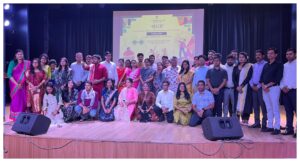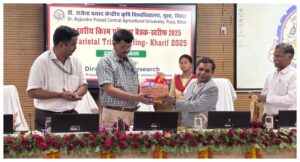
Muzaffarpur / Patna : A young scientist from Muzaffarpur, has played a key role in a medical breakthrough that could transform the treatment of severe pneumonia. Dr Aditya Shekhar, part of a German research team at the Helmholtz Centre for Infection Research (HZI), has helped develop a drug that disarms Staphylococcus aureus, a bacteria often responsible for fatal lung infections.
The discovery is especially significant in the fight against antibiotic resistance — a growing crisis in Indian hospitals, including in Bihar, where pneumonia continues to claim lives despite available treatments. Instead of killing the bacteria, the new drug neutralises a powerful toxin it releases, which damages lung tissue. Without this toxin, the bacteria lose their ability to cause disease.
The research, published in the journal Cell Host & Microbe, offers a new line of defence against bacterial pneumonia, particularly in regions like Bihar where healthcare infrastructure often struggles with resistant infections.
Dr Shekhar, who grew up in Chakkar Chowk, Muzaffarpur, is the son of Dr Gyanendu Shekhar, a medical officer at Sadar Hospital, and Dr Aarti Dwivedi, a well-known gynaecologist in the area. He has been based at HZI for the past eight years, working on infections that disproportionately affect low-resource regions.
“We screened over 180,000 compounds and found a class that could effectively block the bacterial toxin without killing the bacteria, which is crucial to avoiding resistance,” the research team said in a statement.
In trials on mice, the drug successfully prevented death and reversed lung damage, restoring the animals to health. Clinical trials on humans are now being prepared.
For Bihar — where pneumonia, encephalitis, and other infections continue to place a heavy burden on both rural and urban communities — this development offers a ray of hope. It also highlights the global impact of local talent.
“Coming from a small town in Bihar to contributing to research that might save thousands of lives across the world feels like a dream,” said Dr Shekhar in a brief statement shared with colleagues.





